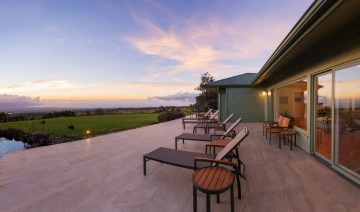{article.name}
Social Media Links
3 Tips for Resilient Decking
Outdoor remodeling projects are booming. Using the right materials will help the space last long past the pandemic.
Posted by: Molly Werner

- Share this:
- Share on Facebook
- Pin on Pinterest
- Tweet on Twitter
Building decks in areas regularly exposed to moisture, such as rainy or snowy climates and shaded property, is often an invitation for rot and deterioration—even for some of the composite materials on the market. Additionally, direct sun can also heat up deck surfaces to uncomfortable levels.
With demand for decks, docks, and outdoor spaces higher than ever, contractors can thoughtfully act as advisers by offering decking materials that mitigate moisture problems and reduce deck surface temperatures. With that in mind, here’s what you need to know about designing decks near, and in, water.
Moisture Management
In quality composite options, the plastic is slowly cooled for strength and stability. Using a slow-cooling process yields superior resistance to damage from outdoor seasonal changes year after year, as the decking maintains its integrity even after cutting and ripping. How the plastic is introduced matters as well. When plastic fibers are blended and encapsulated into wood components, the composite decking can come into direct contact with water and snow without performance issues.
Submersion
One tip for underwater applications is to make sure to use non-corrosive screws and hardware. Stainless steel of at least 316 grade will work underwater. But in some designs exposed to salt water, the stainless screw can rust or pit if it is sealed too well within the product.
The marine industry recommends the use of silicon bronze screws, which are known for their corrosion resistance. The installer should always ensure the entire substructure can survive underwater, and as always check their local building codes to make sure they comply.
Hot Sun Exposure
Decks in direct sun can get as high as 160 degrees Fahrenheit, which is uncomfortable to walk on and can be dangerous to bare feet. One common complaint about composite decking is that it absorbs heat. Remodelers can avoid this by choosing composite decking with cooling technology.
Sign up for our Email List
Stay updated with all our latest posts, products and offers! Just enter your information below.


Comments